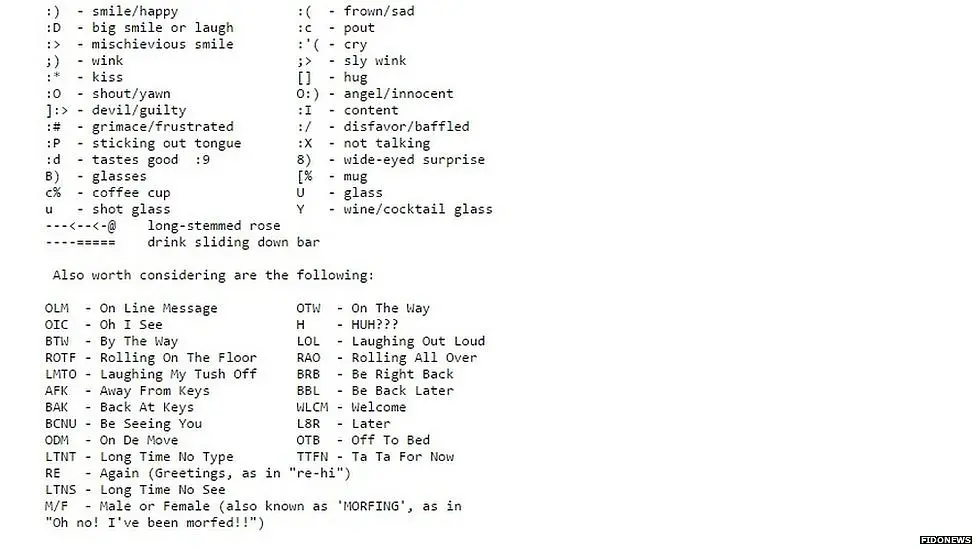created 2025-05-22, & modified, =this.modified
rel: lol Tech Linguistics
A 2015 study showed that people are using “haha” and emojis over LOL to express laughter.
The research claims more than half (51.4%) opt for “haha”, while just 1.9% are LOLers, although it didn’t look at direct messages.
LOL is listed in a section of online slang called “MO ICONS PLEASE”. It appears to be the earliest use of LOL on record.

Wayne Pearson claims to have coined LOL, in the early to mid-1980s.
LOL was first coined on a BBS called Viewline in Calgary, Alberta, Canada, in the early-to-mid-80s. A friend of mine who went by Sprout (and I believe he still does) had said something so funny in the teleconference room that I found myself truly laughing out loud, echoing off the walls of my kitchen. That’s when “LOL” was first used.
We of course had ways of portraying amusement in chat rooms before that (>grin< >laugh< smile) and the gamut of smiley faces, but I felt that none of them really got across the fact that the other person just made you feel foolish by laughing out loud in a room all by yourself (or worse, with other family members in another room, thinking you quite odd!)
He states that it meant truly laughing out loud, not merely smirking and attributes the loss of popularity of lol, in favor of haha as result of the universality of haha
Today, of course, we see many variations, and I’m amazed daily whenever I see “LOL” appear in obscure places. The “true” use of LOL has been tainted; people use it in the same way that grin or “hahahaha” might, but I guess this is the evolution of words and language. I admit that every so often I try to explain to people that LOL has a specific meaning or usage, but most scoff when I explain the origin.